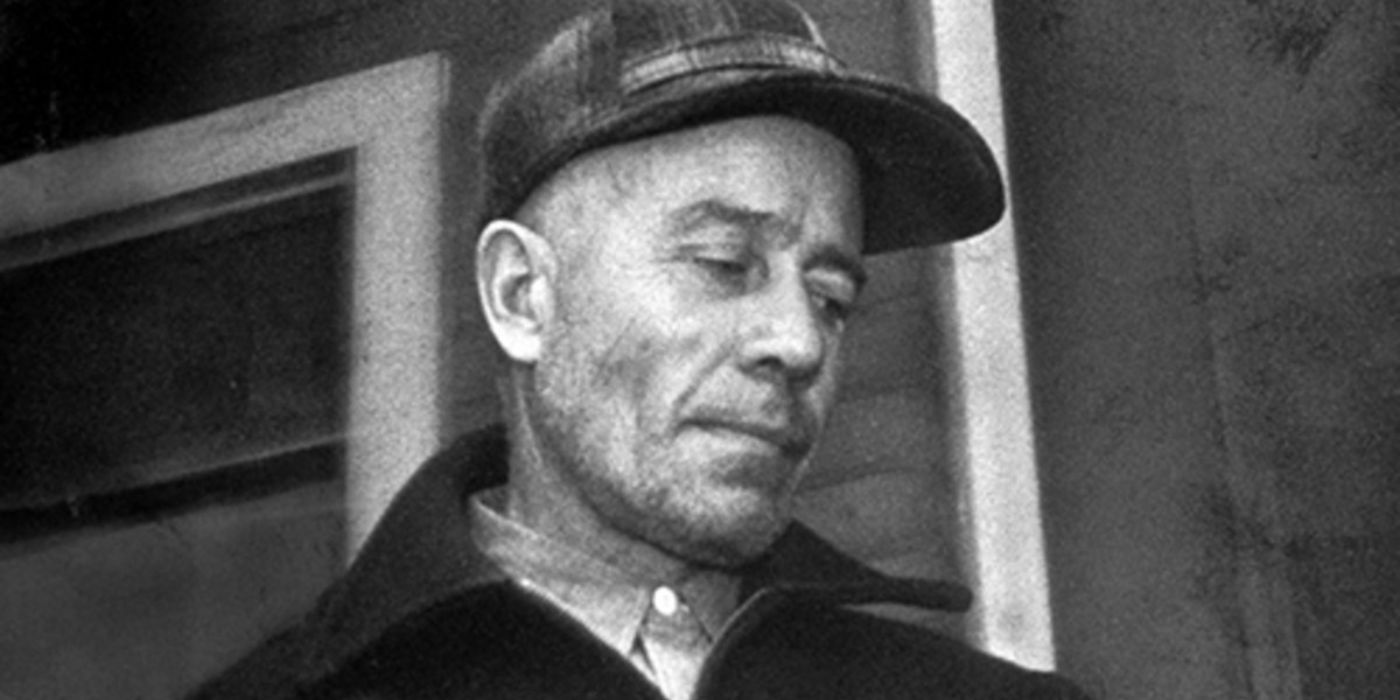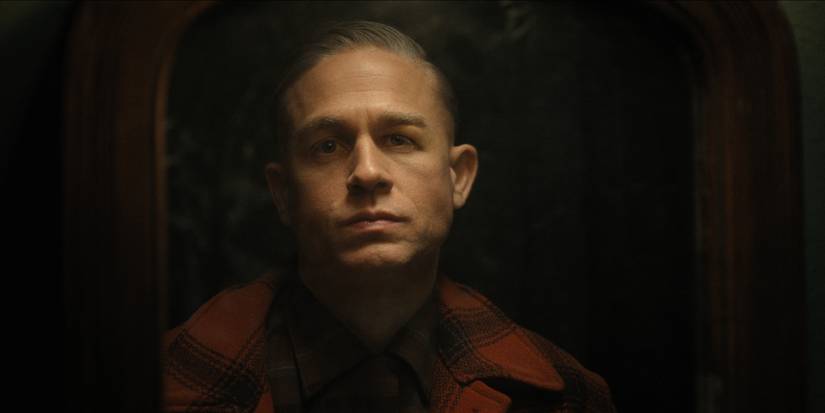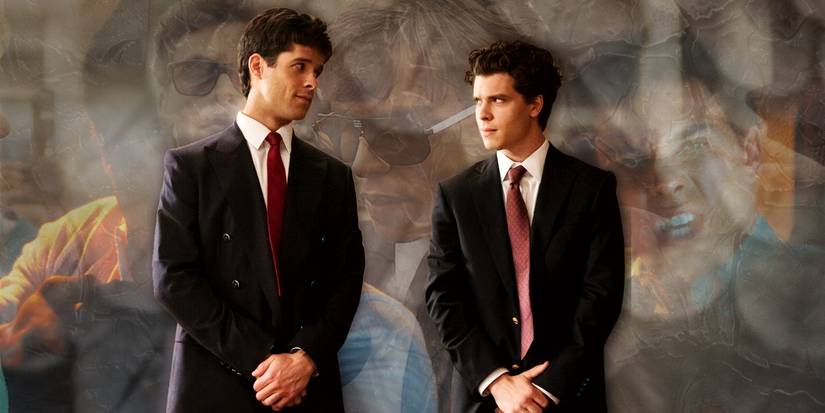
Horror director Osgood Perkins recently criticized the surge in true crime content on Netflix, specifically calling out producer Ryan Murphy. Perkins believes Murphy has built his career by taking advantage of the suffering of real people. Perkins, son of the famous actor Anthony Perkins (best known for playing Norman Bates in Psycho), was direct in his assessment.
In the new miniseries Monster: The Ed Gein Story, Joey Pollari plays Anthony Perkins, the actor who famously portrayed Norman Bates. TMZ spoke with Perkins’ son about the show’s depiction of his father and how much creative license it took. He was so offended by the way his father was portrayed that he stated he would have absolutely nothing to do with the project.
He expressed his disapproval of how Netflix and Michael Murphy portray true crime, specifically their tendency to turn real suffering into something that seems stylish and significant. He pointed out that these true crime series often lack important background information, and that Netflix’s approach to these sensitive topics feels exploitative and disrespectful to the people who have actually experienced the events.
Ryan Murphy Has Built An Empire On Romanticizing Serial Killers – And Been Called Out For It

Perkins rightly points out that Ryan Murphy’s shows often sensationalize serial killers. While Murphy is a major force in Hollywood – initially known for hits like Glee and American Horror Story – his recent work on Netflix has frequently crossed the line, exploiting the suffering of victims and their families by glamorizing real criminals.
While not everything he’s created focuses on violence, a significant portion of his work does. And even when it doesn’t involve a murderer, Murphy often takes liberties with the truth, whether he’s portraying historical events or real individuals. He doesn’t seem concerned by the criticism he receives from families who feel he disregards the genuine suffering and loss they’ve experienced. Here are a few instances of this:
- In June 2025, Jack Schlossberg, nephew of John F. Kennedy, Jr, called out Murphy’s American Love Story for “profiting off of [his family] in a grotesque way.” (via Instagram)
- In 2016, the families of the late Nicole Brown Simpson and Ron Goldman made their upset over The People vs. O.J. Simpson: American Crime Story widely known. In what would become a repeated pattern for Murphy, the families revealed that they were not contacted by production, nor did they give consent, and they had serious issues with the significant rewriting of history. (via ET Online)
- In Fall 2022, families of Jeffrey Dahmer’s victims once again called out Murphy for Monster: The Jeffrey Dahmer Story‘s insensitivity, claiming that they were never contacted by the producers, contradicting Murphy’s statement that they’d notified. (via The Hollywood Reporter)
- Last fall, both Lyle and Erik Menendez and their supporters lashed out against Murphy’s Monsters: The Lyle and Erik Menendez Story, stating that not only did the show get basic facts about the setting wrong, but that, in painting their parents as sympathetic victims, Murphy had “revictimized two sexual assault survivors.” (via Facebook)
- Even the Church of Satan called out the “lazy writers” of American Horror Story for its cheap depiction of church founder Anton LaVey, saying they “appropriated his name and image for their Devil worship drivel [which] is unimpressive and boring.” (via ScreenCrush)
This is only the beginning of the problem. The main issue is that Murphy repeatedly twists the lives and experiences of real people to create a more dramatic and sensationalized story, frequently inventing details about their personal lives or character. While Hollywood often takes creative license with true stories to make them more engaging, Murphy’s changes go much further.
Unlike most filmmakers in Hollywood, Ryan Murphy doesn’t seem to prioritize respecting the lives and experiences of the people his shows are based on. While most biopics and fictionalized stories involve getting permission or advice from those involved, Murphy consistently avoids contacting families for consent or input. This suggests he’s more interested in sensationalizing events than accurately or sensitively portraying them, and doesn’t seem concerned about the emotional impact on those affected.
Ryan Murphy’s Defense Of His True Crime Shows Never Holds Up
 Custom Image by Sarah Novack
Custom Image by Sarah Novack
Murphy has consistently dismissed the legitimate concerns and criticism raised by families and victims. For example, when the Menendez family criticized his show Monsters, he claimed it was “the best thing that has happened to them in 30 years.” His apologies have never been sincere or taken full responsibility; instead, he’s offered a dismissive “sorry if you were offended.”
Murphy often defends his true-crime shows by saying they simply “hold up a mirror to people and society” (according to Netflix). But this argument doesn’t hold up – if the portrayal is so twisted and inaccurate, it stops being about reflection and starts feeling like exploitation for entertainment.
However, the idea that his work offers important social commentary is weakened by his sensational and excessive depiction of serial killers. For example, in Monster: The Ed Gein Story, there’s a short scene showing a woman’s body hanging and butchered like an animal. While this woman was a real person with a name, in Ryan Murphy’s shows, she’s reduced to a disturbing visual element.
Ryan Murphy consistently portrays victims as simply tools to highlight his serial killers, not as people with their own lives and stories. They’re treated like disposable objects, used to create a specific atmosphere rather than being treated with respect – or even left alone. As Osgood Perkins points out, this is not a perspective anyone should support.
Read More
- 10 Best Horror Shorts on YouTube for a Quick Scare
- 10 Must-Watch Horror TV Shows for Mike Flanagan Fans
- Доллар обгонит гривну? Эксперты раскрыли неожиданный сценарий
- 1 Major ‘Captain America 4’ Villain Was Originally Supposed to Die
- 10 Underrated Fall 2025 Anime That Are About to Blow Up on Streaming
- 10 Blockbusters That Still Bombed At The Box Office
- 10 Best ‘Naruto’ Filler Episodes
- 10 Most Disappointing Biopics of Beloved Musicians
- 10 Devastating Buffy Episodes Fans Struggle to Rewatch
- 10 Apple TV Shows That Outshine Netflix Originals in Quality
2025-10-23 23:39